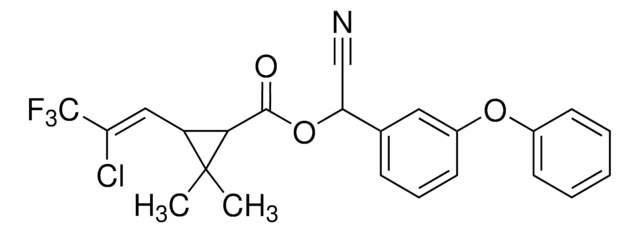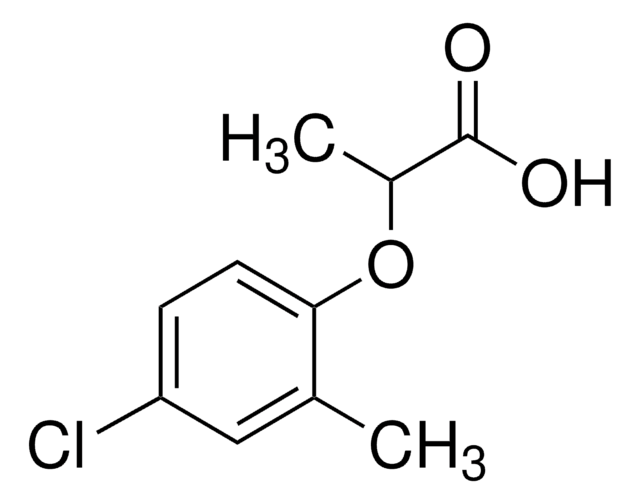45437
Dichlorprop-methyl ester
PESTANAL®, analytical standard
Synonym(s):
Methyl 2-(2,4-dichlorophenoxy)propionate
About This Item
Recommended Products
grade
analytical standard
Quality Level
product line
PESTANAL®
shelf life
limited shelf life, expiry date on the label
technique(s)
HPLC: suitable
NMR: suitable
gas chromatography (GC): suitable
application(s)
agriculture
environmental
format
neat
SMILES string
COC(=O)C(C)Oc1ccc(Cl)cc1Cl
InChI
1S/C10H10Cl2O3/c1-6(10(13)14-2)15-9-4-3-7(11)5-8(9)12/h3-6H,1-2H3
InChI key
SCHCPDWDIOTCMJ-UHFFFAOYSA-N
Looking for similar products? Visit Product Comparison Guide
Application
Recommended products
Legal Information
Not finding the right product?
Try our Product Selector Tool.
Storage Class Code
10 - Combustible liquids
WGK
WGK 3
Flash Point(F)
Not applicable
Flash Point(C)
Not applicable
Personal Protective Equipment
Regulatory Listings
Regulatory Listings are mainly provided for chemical products. Only limited information can be provided here for non-chemical products. No entry means none of the components are listed. It is the user’s obligation to ensure the safe and legal use of the product.
JAN Code
45437-250MG:
45437-BULK:
45437-1EA:
45437-VAR:
Choose from one of the most recent versions:
Certificates of Analysis (COA)
Don't see the Right Version?
If you require a particular version, you can look up a specific certificate by the Lot or Batch number.
Already Own This Product?
Find documentation for the products that you have recently purchased in the Document Library.
Our team of scientists has experience in all areas of research including Life Science, Material Science, Chemical Synthesis, Chromatography, Analytical and many others.
Contact Technical Service








